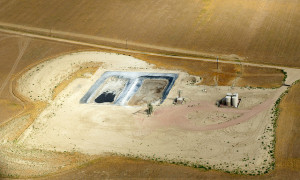By Natalie Sims
Last month, the Oxford Institute for Energy Studies (OIES) published a report, US Shale Gas and Tight Oil Industry Performance: Challenges and Opportunities, about the financial drain on energy companies caused by their investment in shale gas and tight oil extraction in the US. The OIES is an independent research centre that analyses a wide range of issues surrounding energy, with a particular focus on natural gas and oil.
Having been mostly ignored outside industry publications, the report by Ivan Sandrea details the haemorrhaging of money by the majority of energy companies involved in what is often referred to as the ‘shale gas revolution’. This ‘revolution’ involves the exploitation of unconventional fuels through techniques such as hydraulic fracturing, or fracking, and has come at great financial cost to many of the companies involved.
According to OIES’s report, the companies invested in shale gas and tight oil have had to write-down close to $35 billion since wide-scale development of these fuels sources began in the US. This essentially means that since 2006, there has been a massive devaluation of these companies’ fracking-related assets.
Shale gas and tight oil reserves have been increasingly presented as a cure-all for several of America’s energy and economic woes: dependence on foreign energy supplies, high energy costs at the consumer level and unemployment. Despite the excitement amongst energy economists about the viability of these sources, according to the report, extraction has yet to prove economically viable due to several factors.
First, the nature of shale gas and tight oil requires much more costly extraction techniques. Compounding this is the need for a high number of wells, none of which have high or long-lasting outputs. In order to try to create a profitable scheme, companies constantly have to explore and drill test sites, meaning that shale gas and tight oil extraction require constant financial input. As a result of high production costs, these unconventional fuels are highly susceptible to fluctuations in energy commodity prices.
This report complements an earlier publication from the OIES about the viability of fracking in the UK. According to Howard Rogers’s UK Shale Gas-Hype, Reality and Difficult Questions, the limited success seen in the US is unlikely to be repeated in the UK and there has been much debate as to whether the results can be replicated at all outside the US.
As illustrated by Sandrea, the existence of large shale gas deposits, such as the one that exists in northern England, does not guarantee it can be harvested. According to an article by Robert A. Hefner III in Foreign Affairs (May/June 2014), a particular set of circumstances exist in the US that has made the explosion of fracking possible – circumstances that are unlikely to be reproduced anywhere else.



Then why do these companies pursue these methods? They’re not usually known for doing things against their financial interests…
It’s a good question. There is quite a bit of literature that talks about the ‘fracking bubble’ in the US; that might be a good place to find out. Try here first: http://shalebubble.org/
Thanks!